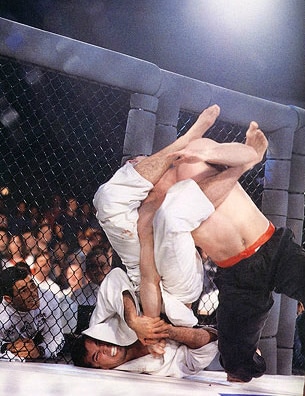 After having seen a certain martial art demo have you heard someone say or have you said this before? "That will never work... in the 'cage'/ on the 'street'/ in UFC/ against a boxer or mixed martial artist!" If you have I'd say you're/they're probably right. The problem with that statement is the UFC or 'the cage' isn't the be all end all testing ground for martial art. When it comes to martial effectiveness I'd say 'the cage' or the UFC is one of, if not the best place, to pressure test your technique in a 1 on 1 all inclusive environment. The more broad problem is that 'martial effectiveness' isn't the only goal in 'traditional' techniques, styles, exercises, or forms. My purpose in writing this post is to help you refocus how you look at traditional martial arts, and martial art practice in general. The focus when looking at martial arts, especially traditional ones, should be on asking "Does the art build a certain skill, attribute or does it have some other cultural or social relevance?" Various martial arts focus on different aspects of these. Boxing, JiuJitsu, and Mui Thai even fall into these categories. In particular we're looking at skills such as musculoskeletal development, cardiovascular and other forms of fitness, whole body coordination, efficient strength, posture, and rehabilitation of injuries and many more. After seeking the reasoning we then have to ask ourselves is this something we could find appealing? It all boils down to critical thinking. In this post we'll offer some references and knowledge to find reasons behind traditional practices and my personal reasons for continued practice of traditional martial arts. After reading this I hope you can make a more well informed opinion of traditional and modern practices. =)
0 Comments
|
Your AuthorDaniel R. Hyde
Licensed Massage Therapist OIF, OEF Veteran U.S. Marine Corps Instructor of: Kwan Ying Do Kung Fu Tai Chi Chuan Chi Kung Tui Na, Chinese Massage Thai Massage Shiatsu, Japanese Massage Archives
May 2021
Categories |


 RSS Feed
RSS Feed
